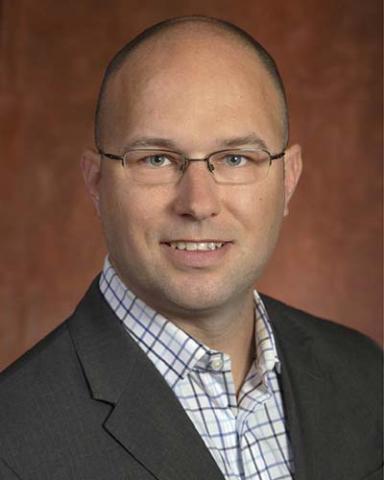Study by Social Work Researcher Named Among “Best of 2018” by the International Pediatric Transplant Association

FSU College of Social Work Assistant Professor Michael Killian led a team of researchers in a comprehensive, systematic review of the literature on the reasons behind pediatric organ transplant patients not taking their medication. One of the vital steps for children receiving an organ transplant is consistently taking immunosuppressant medication that prevents and delays organ rejection and failure.
The article, published in the journal Pediatric Transplant was named one of the “Best of 2018” articles by the International Pediatric Transplant Association at their 2019 conference for its findings. The review was done in collaboration with the Solid Organ Transplant Program at Children’s Medical Center of Dallas. Dr. Kelli Triplett who is the Clinical Psychologist at this transplant center and an Assistant Professor at the University of Texas Southwestern Medical Center was an important contributor to the review.
“Organ transplantation is a life-sustaining treatment for end-stage organ failure, but not a cure,” Dr. Killian explained. “Transplantation is an opportunity to increase and sustain the quality of life for the patient as long as the organ will sustain the patient. It’s critical that patients stay on their medication to enhance and sustain their quality of life and the health of their transplanted organ.”
Killian and his research team reviewed existing literature in order to identify the psychological and social predictors of why pediatric patients fail to take the medications vital to keeping the transplanted organ functioning as long as possible.
Dr. Killian noted a strong need for a consensus on identified predictors that lead to medication nonadherence. When children with transplanted organ do not adhere to their medication, the devastating result is the body’s reject and failure of the transplanted organ.
“A lot of factors come into play for this very special population. Caring for a child experiencing chronic illness is a difficult challenge for families. The whole family has to adjust to the medical care and needs of the child, and often medication and treatment regimens are complex,” Killian expounded. “The frequency of appointments, treatments, and medical checks take an enormous amount of effort on the part of both child and family, making the psychological and social burden immense.”
From a review of more than 1,300 studies identified in the empirical literature, 54 studies representing 49 studies were selected as a final sample. Many studies identified the age of the patient, especially adolescence, that is particularly challenging for a number of reasons such as social pressures like peer social interactions and the need to feel normal. Psychological challenges like mental health issues also impact both patient and family adherence to medication regimens.
Perhaps most importantly, the strength and resources of families play a crucial role in their children remaining consistent with their medication. Familial predictors were broad and included factors related to socioeconomic status, single-family households, low family cohesion or communication, and the presence of conflict.
“More research is needed on the experiences of families with high levels of medication nonadherence to identify the specific barriers they are experiencing,” said Killian. “Researchers and transplant teams are working to identify those patients and families at greatest risk of nonadherence and poor transplant outcomes early in the process and throughout the post-transplant period. We are working to create screening tools to support identification of at-risk patients, along with aids to support these families and transplant team members.”
Killian also noted that patients and their families should always work in close collaboration with their transplant team and care professionals as a means of support. “Transplant nurses, social workers, psychologists, physicians, and other clinical professionals are there to support these children and their families.”
To learn more, contact Dr. Michael Killian at mkillian@fsu.edu.
